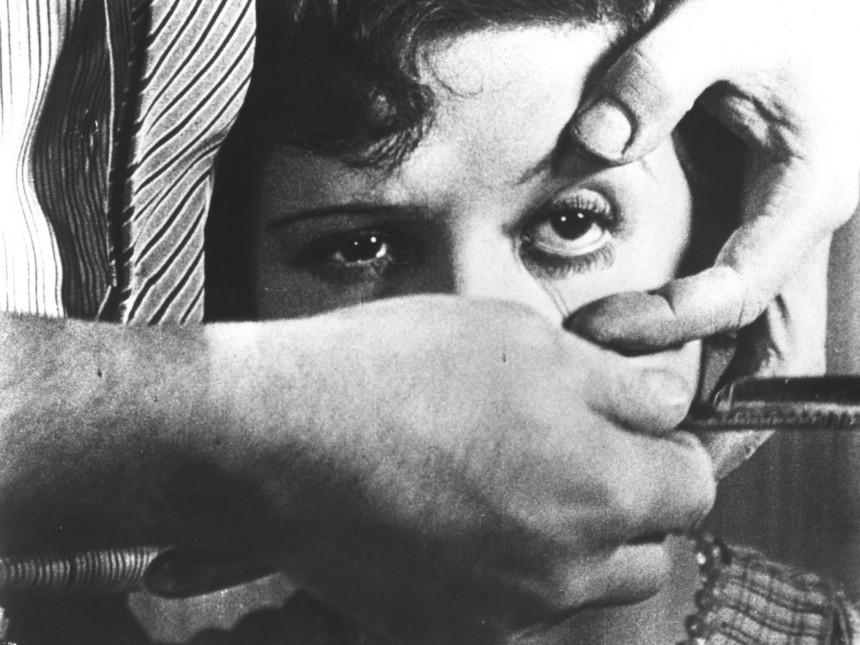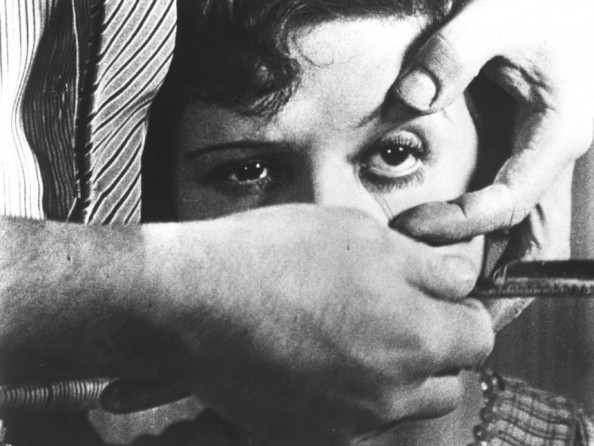Close-Up Film Course: Surrealism in Cinema from Luis Buñuel to David Lynch
Lecturer: Virginie Sélavy
Dates: 26 February, 5, 12, 19, 26 March 2019
Time: 7-9pm
Venue: Close-Up Film Centre, London
Fees: £75 / £60 conc. / £50 Close-Up members
Book tickets on the Close-Up website
Electric Sheep founder Virginie Sélavy explores the influence of Surrealism on cinema in a new and expanded five-week film course running from 26 February – 26 March 2019 at London’s Close-Up Film Centre.
Surrealism is one of the art movements that has had the strongest influence on cinema and its impact has lasted to the present day. Emerging at the beginning of the 20th century when cinema was still in its infancy, its focus on dreams and the unconscious made it particularly apt to help shape the new art of moving images. Rejecting a rational approach to the world, the Surrealists led by André Breton sought to free mankind from artistic as well as moral and social conventions, liberating imagination to reveal the deeper connections between dream and reality. Their revolutionary artistic techniques had a political dimension and aimed at shaking up the established order in the widest sense. Central to this art of revolt were themes of violence and desire, their subversive intensity deployed to shock audiences out of their complacent worldviews.
This five-week course will explore the influence of Surrealism on cinema from the beginnings of the movement through to 1960s psychedelia and experimentation, up until its more recent incarnation in the films of Guy Maddin and David Lynch.
Course breakdown
Week 1 – The Beginnings of Surrealist cinema
Luis Buñuel and Salvador Duanš’s Un chien andalou (1929) and L’âge d’or (1930), Germaine Dulac and Antonin Artaud’s The Seashell and the Clergyman (1928), Jean Cocteau’s The Blood of a Poet (1931)
Week 2 – Luis Buñuel and Spanish-Latin American Surrealism
The later part of Luis Buñuel’s career, Alejandro Jodorowsky, Juan López Moctezuma and Panique
Week 3 – Post-war Surrealism in France
Georges Franju, Jean Rollin, Walerian Borowczyk, Roland Topor, Jean Ferry and Harry Kümel
Week 4 – Eastern European Surrealism 1960s-70s
Jaromil Jireš’s Valerie and Her Week of Wonders (1970), Věra Chytilová’s Daisies (1966), Jan Němec’s The Party and the Guests (1966), Dušan Makavejev’s W.R.: Mysteries of the Organism (1971), Wojciech Has’ Hourglass Sanatorium (1973), Andrzej Żuławski’s The Devil (1972)
Week 5 – Surrealism in contemporary cinema
Jan Švankmajer, Brothers Quay, Terry Gilliam, Guy Maddin, David Lynch
(This content is indicative and not a detailed plan of each class)
———————————————————————————————
Virginie Sélavy is the founder and editor of Electric Sheep, the online magazine for transgressive cinema. She was the co-director of The Miskatonic Institute of Horror Studies – London from January 2015 to December 2017. She has edited the collection of essays The End: An Electric Sheep Anthology, and has written a chapter for Lost Girls: The Phantasmagorical Cinema of Jean Rollin and contributed to World Directory Cinema: Eastern Europe and Film Locations: Cities of the Imagination – London. Her work has appeared in various publications, including Sight & Sound, Rolling Stone France, Cineaste and Frieze. She lectures on film and regularly gives talks on topics ranging from women exploitation directors to Michael Reeves, sorcery and the counterculture. She is currently working on a book on Sado-Masochism in cinema.
For more information visi


